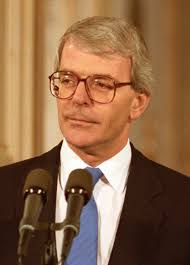The Political Legacy and Impact of John Major

Introduction
John Major, who served as the Prime Minister of the United Kingdom from 1990 to 1997, remains a significant figure in British politics. Major’s tenure was marked by economic challenges, political turbulence, and a drive for unity within the Conservative Party following the controversial leadership of Margaret Thatcher. Understanding Major’s role and the current relevance of his policies is essential as the UK continues to navigate a complex political landscape.
John Major’s Tenure
Major took over the premiership after Thatcher’s resignation, inheriting a government that was deeply divided and facing economic difficulties, including soaring unemployment and rising inflation. He implemented the ‘Citizen’s Charter’ in an effort to improve public services and increase accountability in the government. Additionally, Major’s administration was notable for its role in the Northern Ireland peace process, culminating in the signing of the Downing Street Declaration in 1993, which laid the groundwork for future peace agreements.
Under Major’s leadership, the UK faced significant challenges, including the Black Wednesday crisis in 1992 when the pound fell out of the European Exchange Rate Mechanism, leading to a loss of public confidence in his government. Despite these setbacks, Major’s government made strides in international diplomacy, strengthening relations with Europe and the United States.
Recent Reflections on Major’s Legacy
In recent months, Major has made headlines for his comments on current political issues such as Brexit and the state of the Conservative Party. He has expressed concerns over the direction of the party and has been vocal about the need for unity and a focus on meaningful governance rather than party politics. His criticisms resonate, especially in light of the increasing polarization in UK politics and the ongoing challenges presented by post-Brexit negotiations.
Major’s experience during times of uncertainty makes his insights particularly valuable. He advocates for dialogue and cooperation across party lines, echoing sentiments this would benefit a divided nation seeking stability and pragmatic solutions.
Conclusion
As Britain continues to grapple with its identity and future in a post-Brexit world, John Major’s legacy offers pertinent lessons. His calls for moderation, consensus, and a commitment to public service serve as a reminder of the importance of leadership grounded in unity rather than division. Looking ahead, it will be crucial for leaders to draw on historical perspectives, like those of Major, to navigate the complex challenges ahead. Understanding figures like Major can guide both politicians and citizens as they seek constructive paths forward in an increasingly complex political environment.









